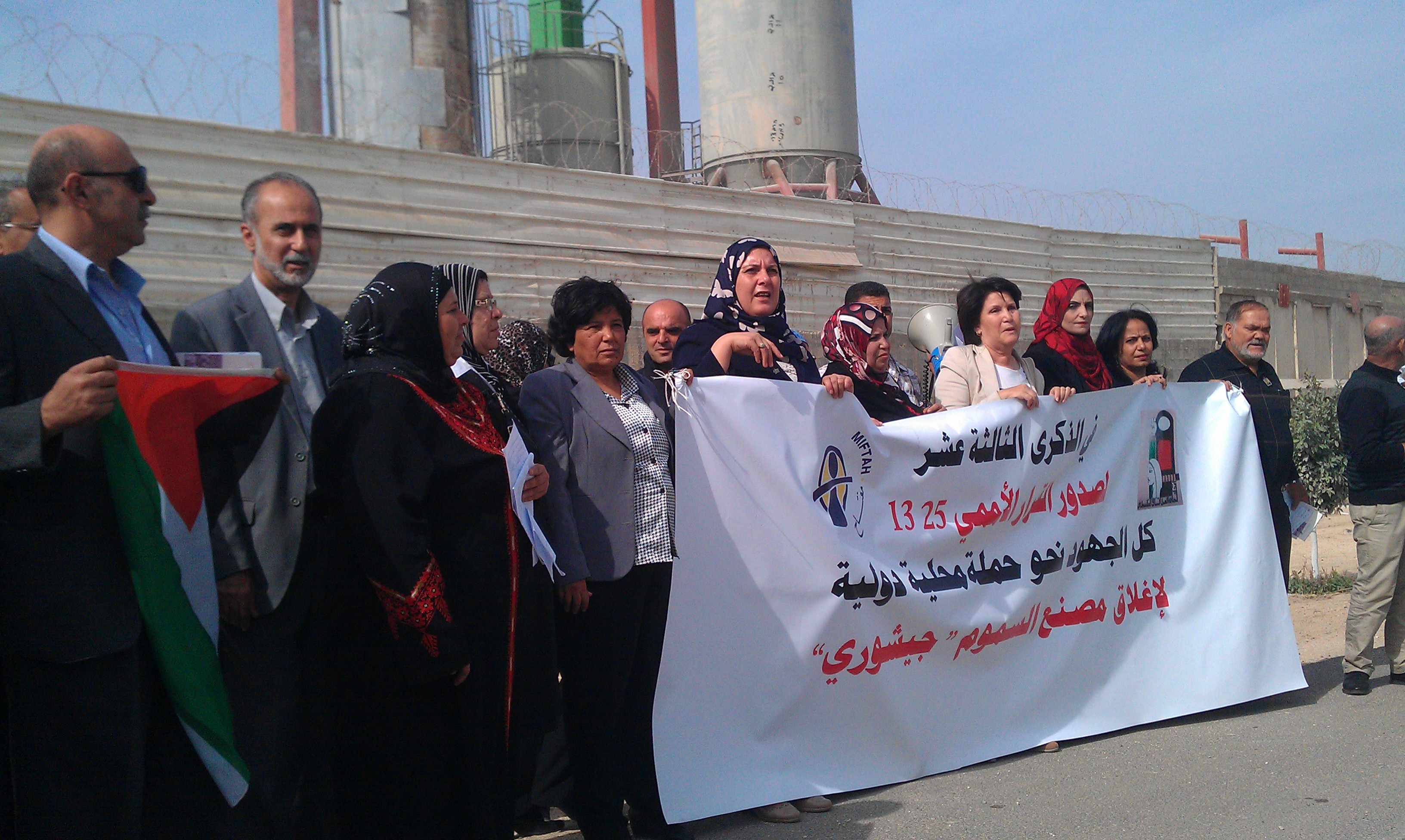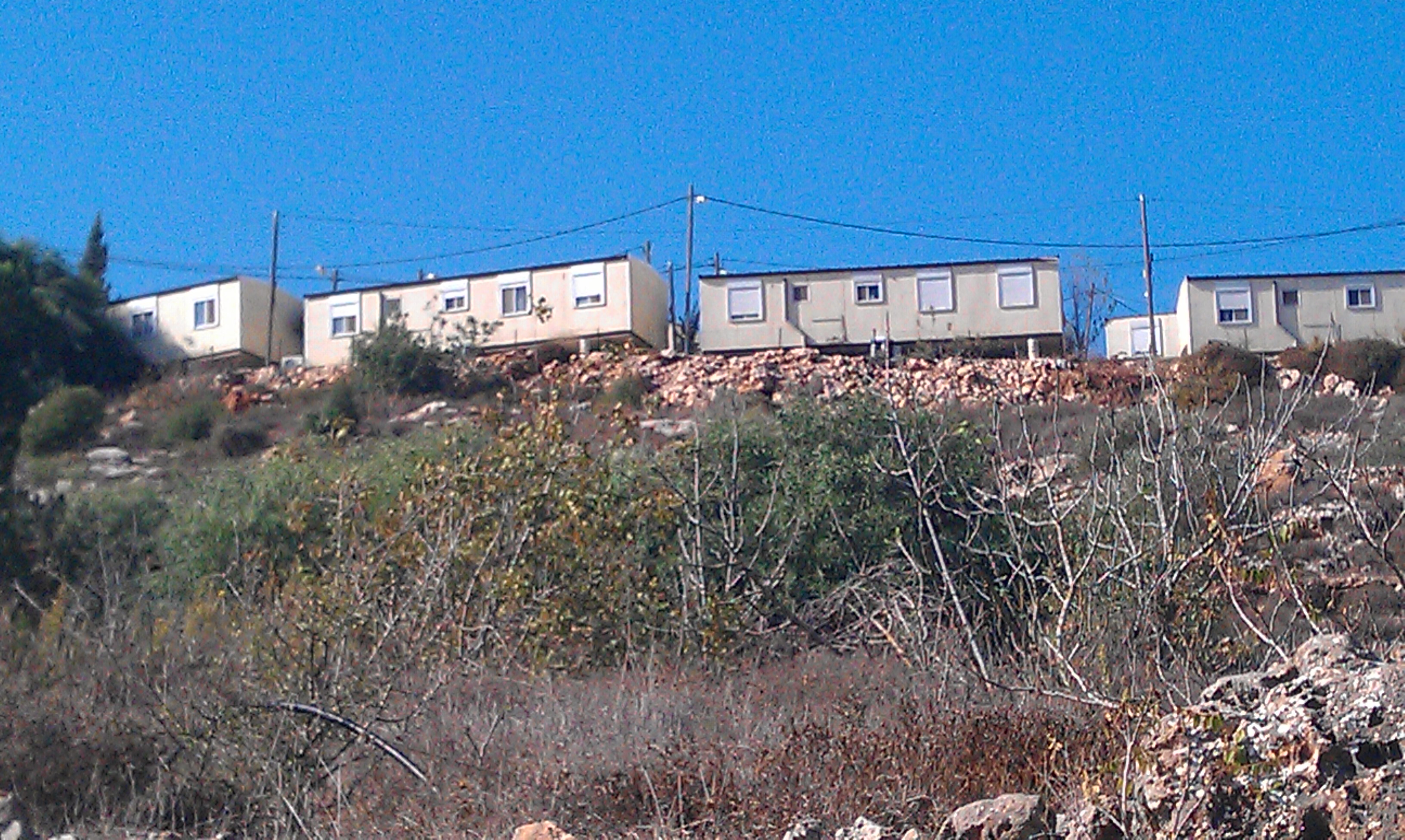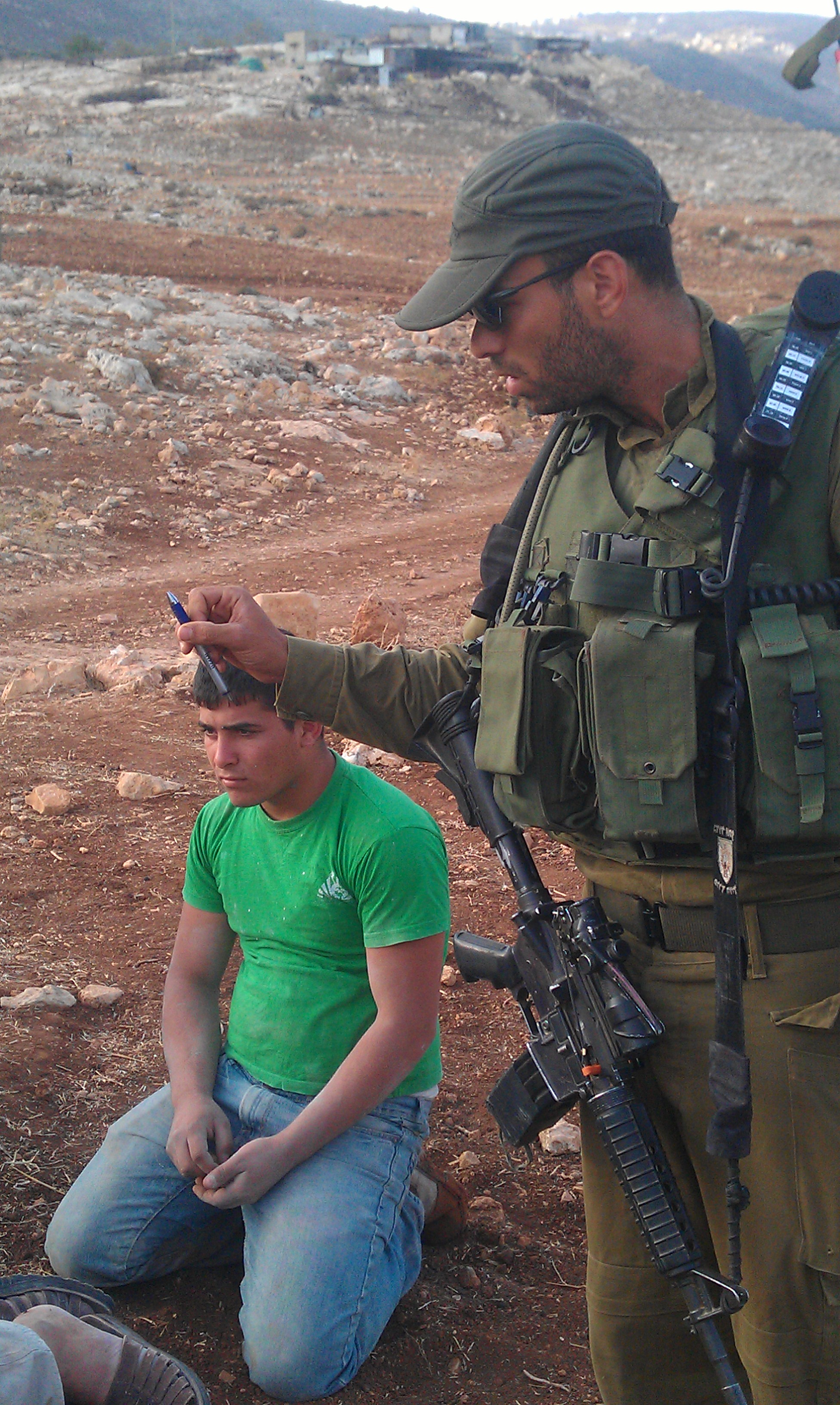Year: 2013
-
Protest against Israeli chemical factories in Tulkarem
5th November 2013 | International Solidarity Movement, Nablus Team | Tulkarem, Occupied Palestine On the 4th of November, associations, officials and activists protested against the chemical factories that sicken the population of Tulkarem. The construction of Israeli factories on Palestinian land near Tulkarem started in 1987. At the time locals were told these installations were…
-
Settlers steal olives in As Sawiaya
4th November 2013 | International Solidarity Movement, Nablus Team | As Sawiaya, Occupied Palestine The villagers of As Sawiaya had gained permission to pick their olives, for just 3 days in the year the Israel army was allowing them to visit their land. These three days were overshadowed by the harassment and attacks from settlers…
-
Further Israeli army harassment in Tawayel
2nd November 2013 | International Solidarity Movement, Nablus Team | Tawayel, Occupied Palestine Today, Saturday 2nd November, a number of Palestinians supported by international activists traveled to the village of Tawayel to help rebuild a house for a family that was made homeless after Israeli forces demolished their property on Tuesday 29th October. By mid morning…



